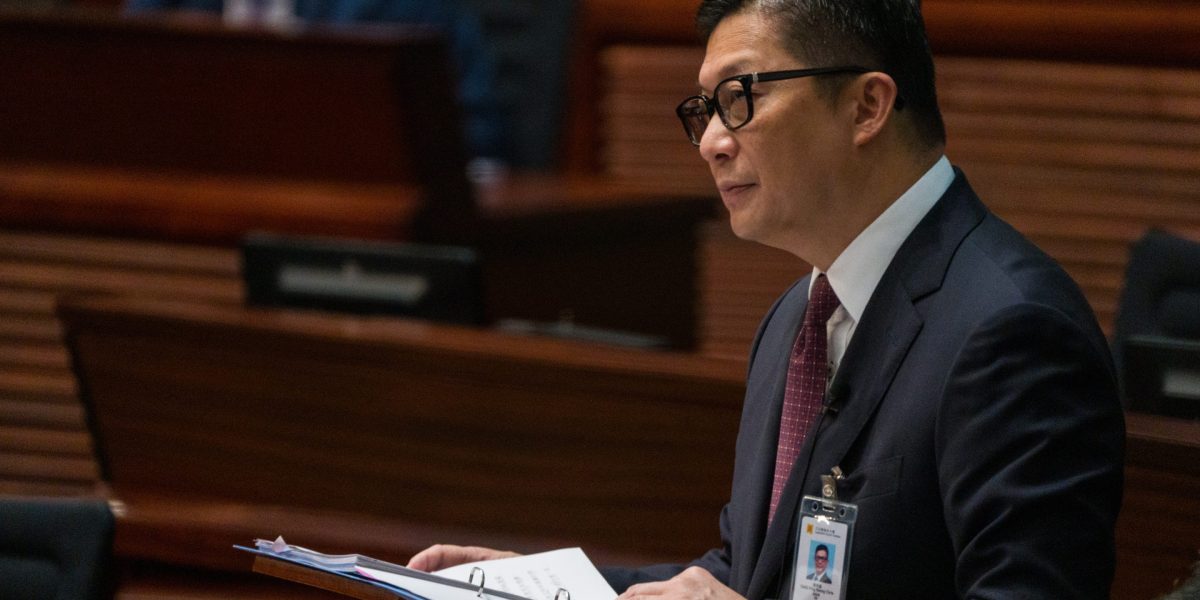Hong Kong is swiftly moving forward with new security legislation that could impose life sentences for treason, alongside expanding police powers significantly. This development is a response to increased demands from Chinese officials for quick legislative action.
A 212-page bill was introduced and debated during a special session in Hong Kong’s Legislative Council last Friday, an unprecedented move since the 1997 handover, indicating the urgency pushed by Chinese leaders. The bill’s passage is almost guaranteed due to electoral changes ensuring only pro-Beijing “patriots” can hold office. The law is expected to provide the government with robust mechanisms to suppress opposition, continuing the crackdown that began with the national security law of 2020 during the height of the pro-democracy protests.
Professor Chong Ja Ian from the National University of Singapore noted that the swift enactment of this legislation demonstrates Hong Kong’s commitment to aligning with President Xi Jinping’s national security priorities. The proposed law includes vague definitions of state secrets and espionage, similar to those on the mainland, sparking concerns among investors. Under the new law, leaking state secrets could lead to a decade in prison, although there are provisions for disclosures made in the public interest.
Despite the support from pro-Beijing camps, some local government supporters are uneasy about the bill’s ambiguous language. Legislators Lai Tung-Kwok, Chan Siu-hung, and Regina Ip have voiced concerns about broad terms like “external forces,” which could ambiguously include any international entity with foreign ties. The government has acknowledged these concerns and promised to refine the definitions to better target actions that threaten national security.
The law’s vagueness could potentially increase self-censorship among journalists and activists, wary of crossing undefined legal boundaries. Patrick Poon, a human rights researcher, emphasized the potential for this legislation to stifle free expression further. The European Union has also voiced worries that the new measures could continue the erosion of freedoms in Hong Kong seen since the 2020 security law’s enactment.
Additional Information:
Hong Kong’s government asserts that the new security legislation is crucial for maintaining regional stability and economic vitality. Security chief Chris Tang highlighted the law’s intention to protect human rights, despite the broader powers it grants to law enforcement. The urgency to pass the bill reflects a significant shift in Hong Kong’s legislative approach since the handover, with recent years showing decreased public opposition due to a widespread crackdown on dissent. This legislation, while aligning with Beijing’s directives, risks escalating tensions internationally, as seen with previous laws that resulted in sanctions against Hong Kong officials by foreign governments.
